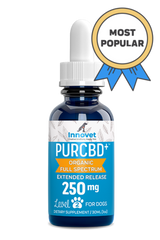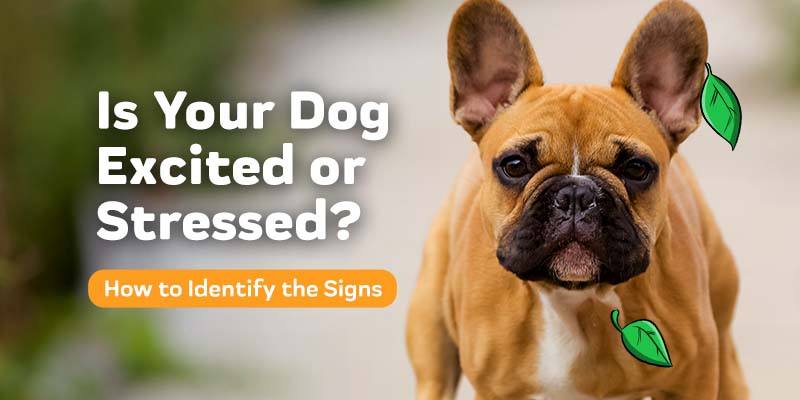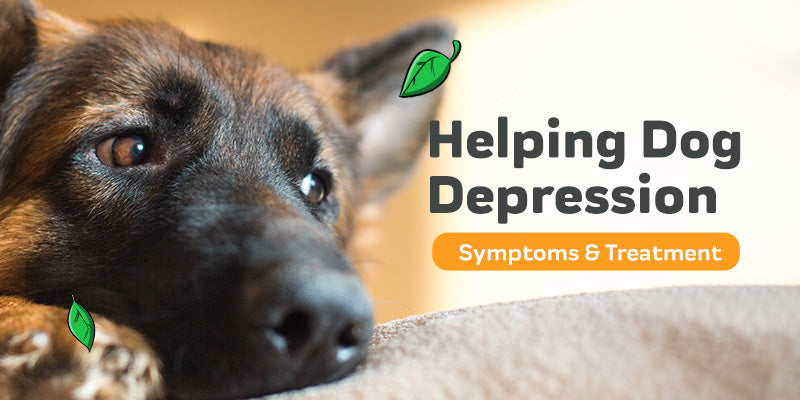Whether you aren't sure yet why your dog needs the rabies vaccine or you are set to get it for them, you probably wonder how much does a rabies vaccine cost? The answer is: not that much and its value is priceless. Read more to fully understand the rabies vaccine cost and the cost of not having your dog vaccinated.
1. What Is Rabies?
2. How Common Is Rabies?
3. What Are The Symptoms Of Rabies?
4. Rabies Onset In Dogs
5. Cause Of Rabies
6. Diagnosing Rabies
7. What To Do About Possible Or Known Rabies Exposure
8. Preventing Rabies In Dogs
9. Should My Dog Get The Rabies Vaccine
10. How Much Does The Rabies Vaccine Cost For Dogs
11. Rabies Vaccine Side Effects And Risks
12. How CBD Oil Might Help With Rabies Concerns
14. Innovations From Innovet
What Is Rabies?
It's impossible to understand how important a vaccine is if you don't understand what it is preventing.
Rabies is a fatal virus that cannot be cured once symptoms are present, can easily spread to other animals and humans, and has frightening symptoms.
How Common Is Rabies?
In the United States, it is rare, because the rabies vaccine is so common. It is not eradicated and is a serious threat to unvaccinated pets. Even with many states making
What Are The Symptoms Of Rabies?
You can recognize that a mammal like a dog, cat, raccoon, skunk, or bat has rabies because it acts bizarre, either paralytic, as in it is uncharacteristically withdrawn, lethargic, or uncoordinated, or it is furious, acting uncharacteristically aggressive. Nocturnal animals out during the day may be rabid. A wild animal not being wary of humans or pets may be rabid. Or a normally friendly pet may suddenly hide, act suspicious, or become aggressive.
Symptoms include:
- headaches
- sensitivity to stimuli like touch, light, and sound
- severe anxiety
- eating unusual things(pica)
- a wide range of bizarre behavior changes
- inability to drink or eat(also called a fear of water)
- drooling or "foaming at the mouth"
- dropped jaw
- change in bark
- disorientation
- lack of coordination
- hallucinations
- lethargy
- fever
- seizures
- paralysis
Rabies Onset In Dogs
The typical onset of rabies in dogs is 3 to 8 weeks, but symptoms can develop in as little as 9 days or take months or even years to develop.
The location of infection, literally the location of the bite, scratch, or wound where the rabies virus entered the body, impacts the length of incubation. The closer the site to the brain, the faster the onset.
Cause Of Rabies
Dogs get rabies by coming into contact with the saliva of a rabid animal. This usually happens when a dog is bitten by the animal, but being scratched could also count as transmission if infected saliva got in the scratch. Rabies transmission is also possible if infected fluids get in an existing wound.
Any mammal can get rabies, but some are more susceptible than others, their bodies contract the disease easier and/or they are likely to fight with other animals and survive. You should be particularly wary of your dog being in contact with a sick dog, fox, racoon, skunk, or bat. The prevalence of rabies in these animals is high enough that there are variants of rabies named after them.
If you know or suspect that your dog has come into contact with a rabid animal, even if there wasn't a bite or scratch, you should take your dog to the vet to evaluate their risk and potentially give them a rabies booster. Regular rabies vaccines should be enough protection for your dog, but sometimes very strong exposure can overpower the vaccine so a booster after exposure is recommended.
Rabies is only transmitted after the virus has reached the brain and entered their saliva, so it should be accompanied with symptoms, but you may not have time to see
Diagnosing Rabies
There is no test that a living animal can undergo for rabies. An animal that has already passed can have their brain removed and tested to see if they had rabies so preventative measures can be taken to treat exposed humans and animals and alert the public.
Your vet can deduce that the dog has rabies if the symptoms are present, with or
What To Do About Possible Or Known Rabies Exposure
If you see an animal you suspect of being rabid, do not let your dog anywhere near it and do not approach it yourself. Contact your local animal control number so a professional can evaluate and handle the situation as necessary.
An animal that appears rabid may be suffering from another malady, but it is best to avoid it in case.
If you think or know your dog has interacted with and even been bitten or scratched by a rabid animal, take it to the vet immediately. The sooner they can be evaluated and receive the rabies booster, if needed, the better. If you can't take the dog to the vet because it is too wild, contact animal control.
The dog will have to be quarantined for 10 days. This may have to be done at the vet's or at a shelter, or it may be done at home, depending on a variety of circumstances. it is crucial to determine if the dog develops symptoms of the disease to ensure it doesn't contaminate others.
If any other animal or human has been bitten, scratched, or potentially come into contact with infected saliva, they must receive immediate evaluation and treatment.
Sanitize any indoor areas that may have been exposed to infected saliva.
Sometimes it is someone else's pet who attacks or fights with your dog. If this occurs,
Preventing Rabies In Dogs
Rabies is rare in the United States because so many pets get rabies vaccinations.
Regular rabies vaccinations protect your dog from getting the disease and increase their chances of surviving it should they actually develop it despite being vaccinated.
Unless your dog is one of the rare few whose bodies can't handle the vaccine and suffer serious complications, it is the best way to protect your dog, your family, and the public from this dread disease.
Lifestyle factors provide additional protections to keep vaccinated dogs and those few who can't be vaccinated from being exposed to the virus at all.
If your dog lives with cats, have the cats vaccinated and/or keep them indoors. Cats actually contract rabies more often than dogs, presumably because they are allowed outside without a leash and are likely to fight with or eat other animals unobserved by you.
Don't let your dog play with or investigate any sick or dead animals in your yard.
Should My Dog Get The Rabies Vaccine
Well, in most states in the US it is illegal for your dog not to be vaccinated unless they have a declaration from the vet that it is dangerous to the dog.
How Much Does The Rabies Vaccine Cost For Dogs

The rabies vaccine for dogs is fairly inexpensive and can be received at a reduced price or even free in some instances. It is in the best interest of the community for all dogs to be vaccinated against rabies, so they try to keep the rabies vaccine cost affordable.
The average price ranges from $15 to $50, depending on the provider and whether the vaccine is for one year or three years.
Animal shelters usually charge less than vets to give the dog the vaccine and some may even do it for free.
Many providers give you a tag and a record of the vaccination for proof, but in some counties, you may have to purchase the tag yourself at prices ranging from $5 to $75.
Ask your vet their rabies vaccine price, and if it isn't affordable to you, call around. Another vet may charge less, and don't forget about your local animal shelter, they often offer a rabies vaccine cost as little as a few dollars, if they charge at all.
Any provider of a rabies shot can tell you if they register the vaccine and give you the tag themselves, included in the cost of the rabies vaccine, or if you will have to do it
Rabies Vaccine Side Effects And Risks
Most dogs have no problem with the rabies vaccine.
You may notice no side effects, or they may experience swelling, tenderness, or irritation at the vaccination site.
Call your vet for advice if your dog experiences side effects like:
- decreased appetite
- sneezing
- runny nose
- coughing
- lethargy
Severe allergic reactions may lead to anaphylaxis and need emergency care.
It is an emergency if your dog seems very ill or experiences:
- elevated heart rate
- vomiting
- diarrhea
- hives
- pale gums
- difficulty breathing
- facial swelling
Thankfully, these symptoms usually appear very soon after they've been given the shot.
Vets can give antihistamines with rabies shots in allergic animals to prevent allergic reactions should that prove to be a problem for your dog, so most dogs can safely receive the rabies shot. The severest reactions may warrant avoiding the vaccine.
It may be possible if the dog is over-vaccinated for rabies that they could eventually develop cancer in the vaccination sites. Check periodically to see the latest
How CBD Oil Might Help With Rabies Concerns
Unfortunately, there isn't any study to show that CBD oil manages the rabies virus itself, but it may help you manage behaviors that detract from your ability to keep your dog safe and it might help with the side effects of the vaccine.
Let's say you have struggled to train your dog because of anxiety or depression. They may be hard to manage and you may not feel able to effectively prevent them from getting into things they shouldn't or fighting with other animals. CBD oil is a popular option for managing pet anxiety and it shows promise at elevating mood and increasing serotonin.
The rabies vaccine can cause soreness or irritation at the vaccination site. Topical CBD oils may be a great way to manage the inflammation and discomfort. CBD oil may also manage other side effects of the vaccine like vomiting, diarrhea, and decreased appetite, but, of course, you would want to consult the vet about the dog's condition before attempting to manage the side effects yourself.
Should your dog develop cancer later in life from the rabies vaccine, studies show CBD oil may be a good secondary or alternative way to address cancer. If they can't take the traditional treatments or need something to help them continue taking traditional treatments, try CBD oil.
Using CBD Oil
CBD oils come in a variety of forms to suit each dog's needs and tastes:
- oil tinctures
- extract concentrates
- capsules
- treats
- topicals
Treats are the most common and easiest way to manage pet anxiety. They come in crunchy and soft forms and have great flavors to make them similar to the other treats your dog likes.
Extract concentrates and oil tinctures contain fewer ingredients than treats and offer you a lot of dosing control. The dosing is particularly important if your dog is unusually small, large, young, old, or sick. Concentrates are just cannabidiol, measured out in little beads, while oil tinctures are cannabidiol mixed with a carrier oil and a flavoring to make it more palatable. If you go the concentrate route, you may have to blend it with a food or beverage with a strong flavor. Both concentrates and tinctures can be given by mouth or added to their food.
CBD Dog Capsules are easy like treats and taste doesn't matter. So, if your dog doesn't mind taking pills, capsules may be a good fit for you.
Topicals, often lotions, allow you to address localized ailments, like a sore or irritated vaccination site.
Dosing CBD Oil
Treats and capsules will have information on the package telling you how many to give your dog of a certain size. This is calculated for average dogs of that size.
Very small, young, old, or sick dogs need smaller doses than your average dog and very large dogs need more. These are the perfect dogs for extract concentrates and oil tinctures, though any dog can use them if that's what you like best. If you have multiple pets you would like to give CBD oil, keeping an extract concentrate or oil tincture on hand gives you the flexibility you need.
Risks Associated with CBD Oil
There aren't many. CBD oil is a natural and safe option to try to manage symptoms of many ailments.
It has virtually no side effects. If you give your dog an excessive amount of CBD oil, they may experience lack of appetite, diarrhea, and sedation.
CBD oil alters how the liver absorbs medications, so medications that are processed through the liver require different dosing than they usually would. This just means you need to tell your vet you are giving your dog CBD oil so they can adjust doses and treatments accordingly.
CBD oil does not have FDA approval. It's just too early for it to have undergone the rigorous testing demanded for approval. This impacts you because no one has the expert knowledge of the pros and cons of CBD oil that they have when something has been FDA approved. It is kind of experimental. Never use it to treat a life-threatening illness unless another treatment is ineffective or the dog can't take it, and you have vet approval.
More vets all the time are coming on board the CBD train and will be both willing and knowledgeable about using it to help manage pet illnesses. If your vet is not one of these, keep shopping around and see if there is a holistic vet in or near your area.
There are some things you should know before purchasing CBD oil.
The Difference Between Full-Spectrum CBD And CBD Isolate
CBD isolate is just cannabidiol, while full-spectrum CBD contains cannabidiol, other cannabinoids (Not THC), terpenes, and nutrients, found in the hemp plant. Full-spectrum is the most popular option because people expect to get more benefits from it, but there isn't really scientific evidence at this time to back that up, so it's really up to you. People will swear that either one is the only one that works for them, so just pick which one appeals to you and try it out. You can always try the other one later to see if it works better for your dog. Full-spectrum may be better for your dog if they need the additional nutrients.
Third-party Tests
CBD oil manufacturers have an outside lab test their products to provide customers with peace of mind. Disreputable CBD oil manufacturers sell products with poor quality cannabidiol, less cannabidiol than advertised, or no cannabidiol at all. You can protect yourself from this by checking the manufacturer's website for these tests and reading them to ensure the correct amount of cannabidiol is in the product. Here's an example of ours, showing test results from each batch of PurCBD+ 125mg.
Where it Came From
Any reputable manufacturer will tell you where they acquired their cannabidiol. Some manufacturer's grow the hemp and extract the cannabidiol themselves while others buy the hemp or cannabidiol from someone else. Both are fine as long as you can know the hemp was grown in a country with safe growing regulations.
Extraction method
Look for mention on the website of the CO2 extraction method as it is the safest and purest option.
Ingredients
Look for CBD oil products with as few ingredients as possible. Fewer usually means they aren't including unnecessary ingredients and it makes it easier to research should there be things listed that you aren't familiar with.
Start your CBD oil journey with Innovet. We meet or exceed all of the criteria outlined here.
Innovations From Innovet
At Innovet, we find creative, eco-friendly solutions to pet problems. If you're asking about rabies vaccine cost, you could use our CBD oil or CBD treats to address anxiety and depression or our hemp balm for localized irritation at the vaccination site, and you might want to check out our anti-pest products, eco-friendly poop bags, and more items to make outdoor time more enjoyable and better for the environment.
Also be aware that we create new products inspired by the needs of individual pets. If your dog has a problem that isn't addressed with current treatments or products, let us know to see if we can't help you.
Sources:
Approved by:
Dr. Sara Ochoa
Doctor of Veterinary Medicine, St. Georges University

Thanks for stopping by!
P.S. We Love You!
Sincerely,
The Innovet Team
Please do not ask for emergency or specific medical questions about your pets in the comments. Innovet Pet Products is unable to provide you with specific medical advice or counseling. A detailed physical exam, patient history, and an established veterinarian are required to provide specific medical advice. If you are worried that your pet requires emergency attention or if you have specific medical questions related to your pet’s current or chronic health conditions, please contact or visit your local/preferred veterinarian, an animal-specific poison control hotline, or your local emergency veterinary care center.
Please share your experiences and stories, your opinions and feedback about this blog, or what you've learned that you'd like to share with others.
















